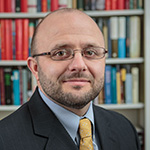By Jeff Brumley
Paris is attacked and about all most Americans can do is change their Facebook and Twitter profile pictures to French flags.
Take that, ISIS.
But for many there is a lot of frustration that goes along with that — heightened even more on the heels of similar recent attacks in Lebanon, Kenya and Nigeria.
“Yes, there is a frustration that people feel, maybe some helplessness,” said Michael Sciretti, minister of spiritual formation at Freemason Street Baptist Church in Norfolk, Va.

But Sciretti and other ministers say there are actions people of faith can take that may crack the icy emotional reactions of fear and desperation that come from watching others come to such violent and senseless ends.
“As a way to remember those who lost their lives in the terrorist attacks this past week in Beirut, Baghdad and Paris, we lit candles as an act of prayer and love,” Sciretti told Baptist News Global. They also sang “Turn Our Hearts, O God” until it faded into silence.
“This was one feeble but immediate attempt to give people an opportunity to respond,” Sciretti said. “But, yes, more is needed.”
‘The community of faith’
It’s advisable for pastors in times of tragedy to remember the soothing and healing qualities of togetherness, said Mitch Randall, pastor of NorthHaven Church, a Baptist congregation in Norman, Okla.
When events like the weekend attacks occur, Randall said he immediately goes through a protocol of actions.
“The first is to immediately call the congregation into prayer — both individual and communal prayer,” he said, adding, it is that coming together that seems to bring the strongest sense of hope and healing.
“There is something about the community of faith coming together, that solidarity to one another.”
“Many of us feel helpless and unsure what to do,” Randall said. “And in our uneasiness and discomfort it is good to be with other people of faith just to feel the presence of faith.”
But that is only a beginning.
“We then need to look at what we can do missionally for those affected most by acts of terrorism,” he said.
That may be tying in with any future actions that may be taken by relief organizations to help victims, including immigrants caught in the middle.
Then there are those things individuals can practice not doing, Randall said: condemning Muslims for the actions of a few radicals. That means not jumping to conclusions and avoiding language that stereotypes Muslims and immigrants.
A very effective way of avoiding those behaviors is to get involved in interfaith ministries, said Randall, a leader in the Oklahoma inter-religious movement.
Randall said he’s been working closely with the leaders of other religious traditions, including Islam, to counter anti-Muslim sentiments that have been expressed locally since Friday’s attacks.
“We have been having interfaith prayer vigils because people are just being ugly,” he said.
‘Exposed to the humanity of each other’
Getting involved in interfaith ministries doesn’t have to be complicated, said Joe Bradford, the Houston-based founder of American Muslims Care, a nonprofit that promotes acts of kindness and outreach in local communities.
“If you’re feeling worried or threatened about Muslims or the Muslim community, go out and make a friend and understand people and create some fellowship,” said Bradford, who formerly served as the imam of a mosque in Jacksonville, Fla.

“And get to know your neighbor,” he added.
One effective way of doing that is participating in joint ministry projects, such as feeding the poor.
Such activities are an antidote to fear and prevent participants from falling into angry, bigoted attitudes and behaviors, Bradford said.
“People are exposed to the humanity of each other and the commonalities of faith.”
‘The people we should be helping’
But angry, bigoted actions are now on display across the United States since the Paris attacks, Jason Coker said, especially in at least 15 states whose governors are seeking to ban the resettlement of Syrian refugees in their jurisdictions. The move follows reports that one of the Paris terrorists may have been a Syrian refugee.
Coker, pastor at Wilton Baptist Church in Wilton, Conn., said that response by those governors is “inhuman, not just un-Christian.”

And it doesn’t make any sense, he said.
“Syrian refugees are running away from ISIS,” Coker said. “These are the very people we should be helping — they know evil more than anyone else in the world.”
But the actions of those governors has opened up an avenue of action for those frustrated people of faith who do want something concrete to do in response to the terror attacks, he said.
“What you can do is look at the states that will accept Syrian refugees and send money their way because they are going to be inundated,” Coker said.
